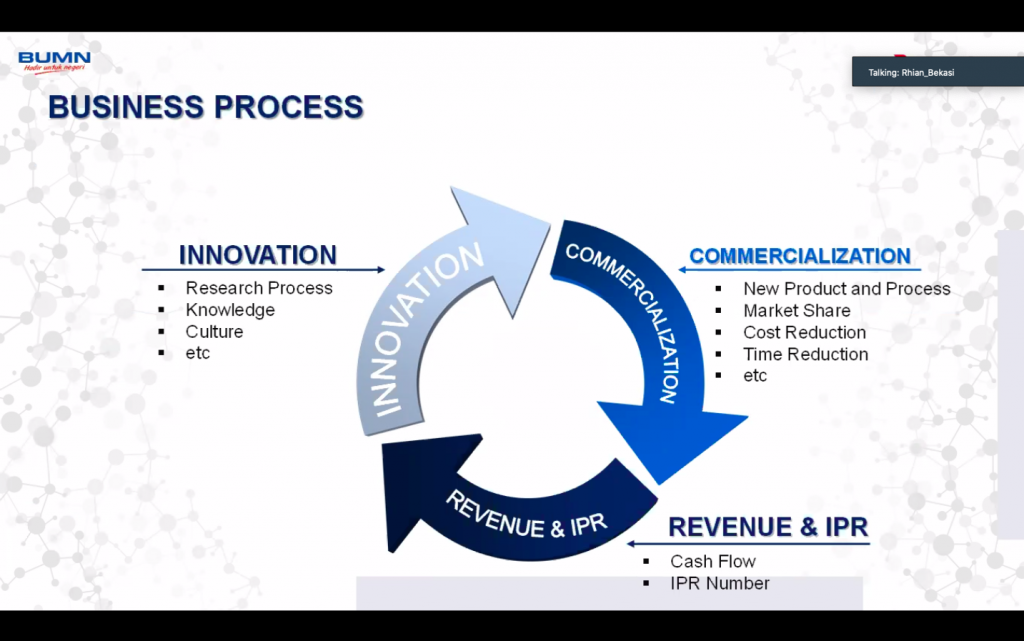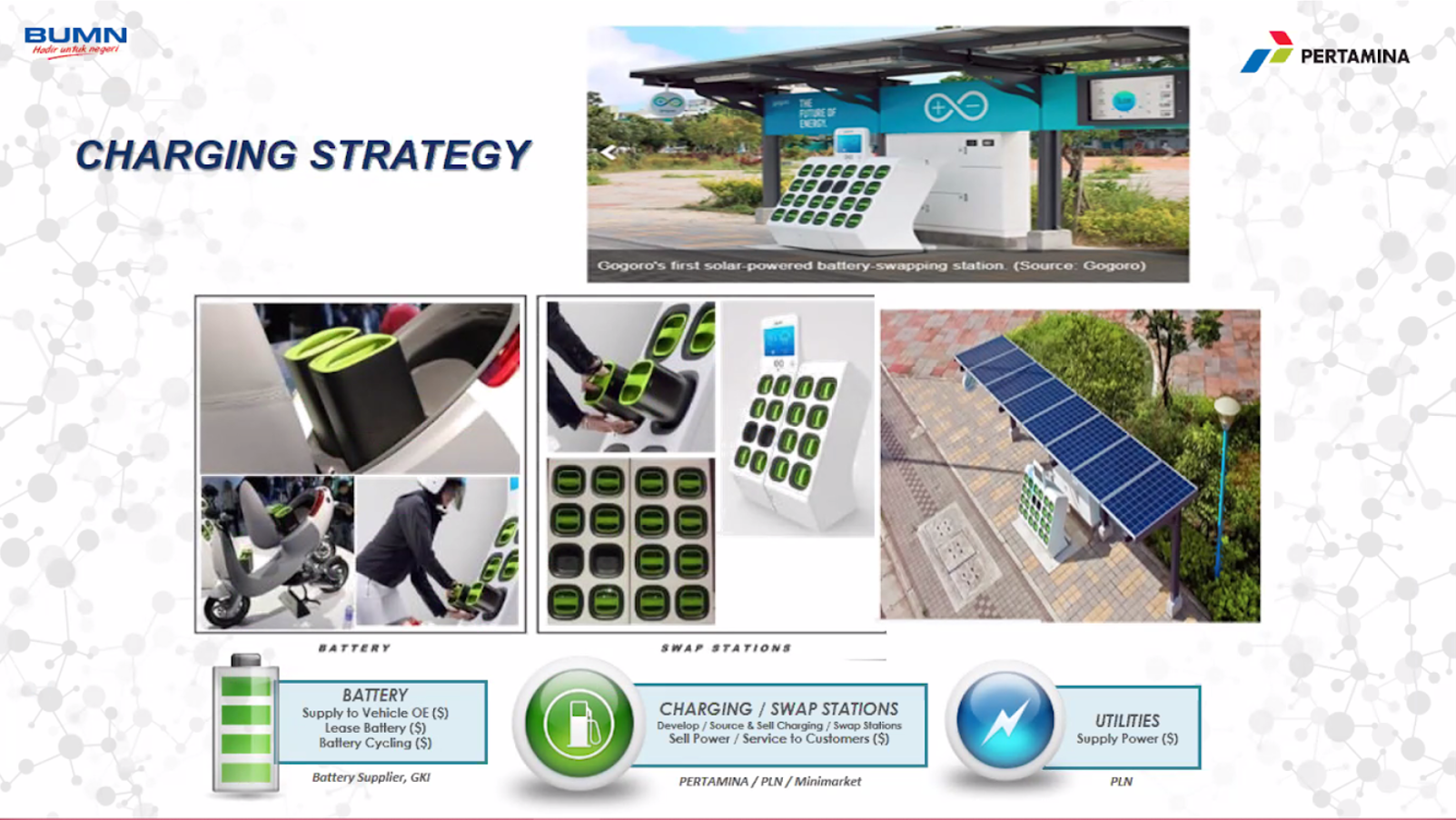Written by Student Reporter (Mitsal Athaya, Management 2022)
“Indonesia should soon begin to see electric vehicles rolling down its city streets,” Rhian Indradewa, the Assistant Manager Incubation Project of Pertamina, forecasted (23/09/2020). Indradewa toured us around the process of product development that Pertamina was currently focusing on electric-powered engines. Pertamina, he said, progressed towards the construction of electricity generated from geothermal energy
Mentioning about business process, Rhian outlined, “Other organizations often consider commercialization as a part of the innovation process. However, in Pertamina, we follow a different approach. While innovation is the process of researching and developing the idea, the next step is to commercialize or to sell the product. That is why we differentiate the two.”
After a briefing about the business process, he explained further about the procedures in which geothermal energy could be converted into electricity. This was part of the innovation process, as he continued. “Geothermal power plants use steam to produce electricity. Steam comes from hot water reservoirs located a few miles or more below the surface of the earth. The steam then rotates a turbine that stimulates a generator that generates electricity,” he described. Once electricity was generated, according to him, it would be stored in various electricity distributors, also known as charging stations.

The concept design of charging stations that Pertamina was formulating, Rhian pointed out that the solar panels — which would trap sunlight during daylight hours — converted the sun’s energy into Direct Current (DC) electricity. What was more, he added, the DC was later transferred to an inverter which would convert DC into Alternating Current (AC) electricity. As he told the class, this AC electricity that would later be used to power the stations and charged the electric vehicles, reducing the carbon emissions and was available in excessive quantities.
Lastly, he concluded with the revelation that plenty of automotive companies in Indonesia already tested for electric vehicles, although, the commercialization was delayed due to the lack of available plants to supply energy for these vehicles. Aside from that, he said,” Many automotive companies in Indonesia have already manufactured electric cars, but decide to delay the commercialization of these cars as the people of the nation are not entirely ready for the change. In addition, the profit-earning objective is also something that they need to take into consideration.”




